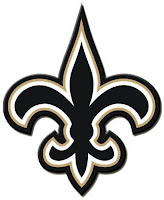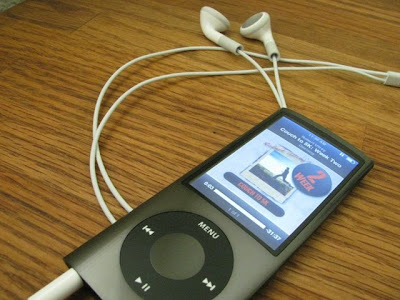When the Olympics are on, I get all swept up in it. It sucks me in.
The precise turns made in traffic on the
speed skating track make my heart pound. When an
ice skater does a jump, I get all nervous that they won’t land it right. I marvel at how freakin’ crazy you would have to be to do
aerials skiing or
ski jumping.
All of these sports get me excited about the
Winter Olympics. But few of the sports suck me in more than
curling.
For real.
It will come on TV and then suddenly, it’s an hour later, and I haven’t moved from the couch. Curling is one of those sports that is completely foreign to me (as a resident of
Los Angeles, I don’t hear too much about curling events coming to town), but it’s so fun to watch during the Olympics.
So, exactly two weeks out from the first round of curling matches in the Winter Olympics in
Vancouver, we’re going to get some serious curling discussion in with our next Q & A.
Today we are hearing from
Jeff Isaacson, a curler from Minnesota who was part of the 2009 national championship team. He’ll be representing the U.S. in curling with teammates
Jason Smith,
John Shuster and
John Benton. The 26-year-old Isaacson spoke to the Concession Stand via e-mail and discussed what his job is during the curling match, why he almost walked away from curling competitively, and what his favorite food is.
CS: How did you get started in curling? What do you like about it?
JI: Most people get involved with curling because they have family members who curl. This was the case with me as well. I would go with my dad and watch his teams compete anywhere from weekly league nights to state and national championships. When I was 13, I decided it was time to try the game for myself. I have been playing ever since. By age 18, I won the Minnesota State Championship and was runner-up in the nationals competing with my dad before he retired from the game. I was fortunate to learn and compete with him. Some of the things that I like about curling are the great people you meet. Curlers truly are some of the best people you will ever meet. It is a game that is far more complex than it looks. It involves a great deal of strategy as well as athleticism. I also enjoy traveling, and curling has given me the opportunity to see the world, having competed in tournaments all across the U.S. and Canada as well as South Korea, Italy, Switzerland, Norway, and Denmark.
CS: What is your position in curling? For those who aren't as familiar with curling, what is your job at that position?
JI: The team has four positions; lead, second, third, and skip. I am the second on the team. This means that I throw the second set of rocks (each player throws two rocks per end, 10 ends per game, with an end being similar to an inning in baseball). When I am done throwing I sweep for the other guys. Sweeping does two things, it causes the rock to travel further down the ice and it also keeps the rock straighter. I also work with the lead on the team to communicate the speed of the ice to the skip.
CS: What are you most looking forward to about the Olympic experience?
JI: I am looking forward to the chance to compete against the best curling teams in the world on the biggest sports stage. Our team has spent lots of time and worked very hard for this moment and we are all excited for the opportunity. So many people talk about what a great experience the
Opening Ceremonies are. It will be nice to be a part of that. It will also be great to experience the Olympic Village where we can meet other athletes and hopefully get a chance to go out and cheer them on as well during some of our down time.
CS: What are your goals for the Olympics?
JI: My goal is to go out and play the best I can play and have the best tournament possible. If I can go out and do my job, it makes everyone else’s job that much easier. Our team wants to make the final four after the round robin. After that, it’s just two games. We want to be on the medal stand.
CS: I read that for awhile, you considered giving up curling competitively. Why did you want to stop and what made you decide to come back?
JI: After graduating from college, I spent a couple seasons curling. It was just getting to the point where I felt it was time to move on and start working on a career. So many people told me that I was still young, and if I have a chance to curl and make a run at the Olympics I should do it now while I still can. With the encouragement of my teammates, I decided curling was what I loved to do and we stayed together to make a run at representing the United States at the Games.
CS: What does a typical training day look like for you?
JI: I live with two of my teammates so we usually practice/train together. We have practice ice available to us after 10 a.m. This allows us to sleep in as none of us are really morning people anyway. Monday through Thursday — when we are not on the road — are our practice days. We spend around an hour and a half to two hours in the late morning going through practice drills on the ice. Attached to our curling club is a skywalk system that we use to walk to the gym where we work on cardio, free weights, and core exercises. After that we have a light meal (usually at
Subway) and go home for awhile. On Mondays we have an additional night practice and on Tuesday we compete in a competitive league at our curling club.
CS: What is our routine on the day of competitions? What do you eat before matches?
JI: When competing at tournaments, we usually have a team breakfast. Usually this involves some cereal, eggs, and toast. We then travel to the competition venue. Depending on the time of the game, I like to have something light, such as a sandwich and some type of fruit before I begin preparing for the game. I try to learn information on the ice, rocks and our opponents and mentally prepare for the game, which involves blocking out distractions and visualizing positive outcomes.
CS: Are you a big fan of any other sports? If yes, which teams?
JI: I have to admit I am not a huge sports fan. I enjoy watching a good tennis match, with my favorite player being
Pete Sampras. I find it interesting reading about certain athletes, what they go through and what makes them tick. So much can be learned by reading about other people’s stories.
CS: What is your guilty pleasure food?
JI: I do have a weakness for pizza. It also doesn’t help living with a cook from a local Italian restaurant. He brings home great meals and desserts so I find myself eating way more than I should sometimes.
CS: What do you enjoy doing when you aren't training or competing?
JI: Being from Minnesota, there are lots of outdoor activities that I enjoy. I live around a lot of lakes, so I like to get out and go boating and fishing, although the past few years I haven’t got to do very much of that. There are lots of 4-wheeling trails so it is fun to make a day or two out of that. I do love to travel, so when I can I like to get away and see new places. I was able to go to Sweden and Finland with some family members this summer and also enjoy Las Vegas and the nice beaches of Florida and Hawaii. As I am finding out, time goes by very fast, so I try to make the most of what I have and make the best of it. It is important to take time for the simple things in life.
---
Many thanks to Jeff for answering my questions! Good luck in Vancouver!































